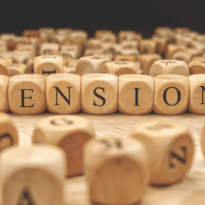March 2020 Investment Summary from the Prudential
Having been hit by the double whammy of reduced demand due to the virus, travel/production restrictions and the spat between Russia and Saudi Arabia; where Russia refused to yield to the kingdoms’ request to cut output, even the speed of subsequent moves were jaw dropping by any standard. Crude oil collapsed 30% intraday, losing almost 50% year to date.
The fallout for energy companies, especially US shale producers led to two temporary circuit breakers kicking in for the US stock market, where it dropped 7% with indiscriminate selling. US 10 year yields fell to a record 31 basis points on safe haven flows whilst the Vix spiked north of 60, which is the highest reading since the global financial crisis. Market participants and authorities are now coming to the realisation that the virus and reactions to it could cause a rapid slowdown to growth globally.
Authorities are reacting by providing co-ordinated responses; central banks by providing liquidity where they can.
The fear in markets is two-fold, one that the potential containment measures executed by authorities damage economic activity and cause profits to get significantly marked down, second the knock on consequences in credit markets, where credit spreads have blown out to levels not seen since 2012, potentially causing funding stresses for companies that need to rollover maturing debt.
The former can’t be solved by central bank action, as the real economy will need time to heal and hopefully a rebound in activity through pent up demand can make up some of the lost output. The latter is something that could potentially be stemmed by providing lending facilities similar to the previous crisis and programmes such as these should be relatively easy to restart.
In terms of data releases last week, Q4 2019 finalised Japanese quarterly GDP came in at -1.8% which was in line with expectations and German/Italian industrial production number surprised to the upside at 3.0%/3.7% month on month respectively for January. UK quarter on quarter GDP disappointed at 0.0% for January, however markets are fixated with numbers that will come out for February onwards, as this will show the impact from the virus slowdown. Some countries such as Germany were already weak coming into this, others like the US were relatively strong and the intensity of the virus grip on the population will determine measures deployed to overcome it. Hence the starting point of the economy and containment measures introduced will keenly be watched by the market.
Outlook
In terms of the virus outlook, with cases only beginning to register in some European countries and the USA, it does seem to us that the illness itself and the reactions to it might become stronger over the coming days.
The key question is whether the knock on impact on global growth has already been priced into markets (or not). Equity markets are now back to similar levels to Q4 2018. At that time there was a fear that central banks would continue to tighten interest rates in the face of softening growth. Valuations do look very attractive compared to the market levels before the sell off began. However, we will watch what happens to the virus and the reaction to it from here, and we reserve judgement about whether the market should be higher or lower in the short term.
GDP growth for the world economy has been lowered by many agencies, with the Organisation for Economic Co-operation and Development (OECD) lowering growth by 0.5% with further forecasted cuts likely. While the portfolio management team went into this market sell off with low levels of absolute risk, we are effectively now neutral for fund ranges where we deploy tactical asset allocation (excluding PruFund). Where we have corporate bonds in the SAA we remain underweight versus cash. We take this approach with a view to put capital to work when the opportunity presents itself, through dislocations in valuations or when data starts to exhibit positive signs. We are of the view that the shock will largely be temporary in nature and growth will likely get worse before getting better.






























